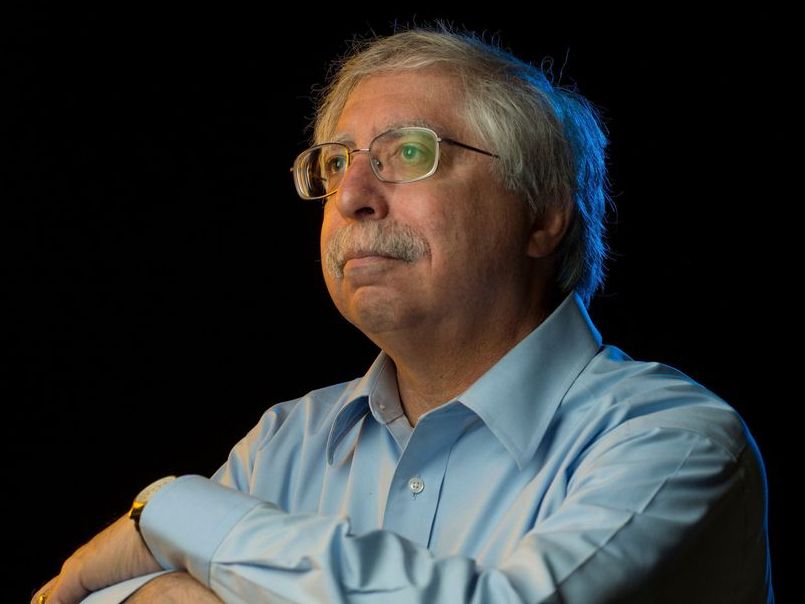Human clones have long been a topic of science fiction, but how far off are they in reality? Let’s take a look at current advances and see when and where we might see the first human clone.
Get the latest international news and world events from around the world.

New clues to predict the risks astronauts will face from space radiation on long missions
The National Aeronautics and Space Administration, NASA, aims to send human missions to Mars in the 2030s. But scientists are still trying to learn more about the potential cancer risks for astronauts due to radiation exposure. Cancer risk from galactic cosmic radiation exposure is considered a potential “showstopper” for a manned mission to Mars.
A team led by researchers at Colorado State University used a novel approach to test assumptions in a model used by NASA to predict these health risks. The NASA model predicts that astronauts will have more than a three percent risk of dying of cancer from the radiation exposures they will receive on a Mars mission. That level of risk exceeds what is considered acceptable.
The study, “Genomic mapping in outbred mice reveals overlap in genetic susceptibility for HZE ion- and gamma-ray-induced tumors,” was published April 15 in Science Advances.
Moscow’s Facial Recognition Tech Will Outlast the Coronavirus
👽 Facial recognition and Covid 19 in Moscow, Russia.
Fyodor R.
MOSCOW – The Russian capital is home to a network of 178,000 surveillance cameras. Thousands of these cameras are already connected to facial recognition software under a program called “Safe City.” Police claim the technology has helped arrest more than 300 people.
Now, as part of the response to COVID-19, authorities are trying to bring every surveillance camera into the facial recognition network. This Orwelian step is supposedly to catch people breaking quarantine.
At the end of January, before Moscow had any confirmed cases of coronavirus, the city purchased the latest version of NTechLab’s facial recognition software.

What do we know about COVID-19 and sewage?
A version of this story was first published by COVID-19 Waterblog. Read the original.
There has been quite some talk about SARS-CoV-2 shedding in faeces and what that might mean for the water industry. Here, Susan Petterson provides a snapshot of the current data.
As I see it, there are two aspects to this conversation: the first is a concern that sewage may contain infectious SARS-CoV-2 viruses; and the second relates to the more theoretical potential of using SARS-CoV-2 RNA concentration in sewage as a public health surveillance tool.



First of its kind experiment uses diamond anvils to simulate the Earth’s core
In an effort to investigate conditions found at the Earth’s molten outer core, researchers successfully determined the density of liquid iron and the speed at which sound propagates through it at extremely high pressures. They achieved this with use of a highly specialized diamond anvil that compresses samples, and sophisticated X-ray measurements. Their findings confirm the molten outer core is less dense than liquid iron, and also put values on the discrepancy.
Jules Verne’s 1864 novel “Journey to the Center of the Earth” depicts explorers on an imaginative trip to the Earth’s core where they find a gargantuan hollow cavern hosting a prehistoric environment populated with dinosaurs. They get there thanks to a tank-like drilling machine that navigates through volcanoes. It sounds fun, but needless to say, it’s a far cry from reality, where researchers explore the inner Earth with a range of techniques and instruments from the comparative safety of the Earth’s surface.
Seismic equipment that measures how earthquakes travel through the planet are pivotal to map some of the larger structural arrangements within the Earth, and thanks to this, it has long been known that at the heart of the Earth lies a solid core surrounded by a less dense liquid outer core. For the first time, experiments and simulations have shown researchers details about this outer core that were previously unobtainable. And these studies reveal some fascinating details.

Robots with insect brains
It is an engineer’s dream to build a robot as competent as an insect at locomotion, directed action, navigation, and survival in complex conditions. But as well as studying insects to improve robotics, in parallel, robot implementations have played a useful role in evaluating mechanistic explanations of insect behavior, testing hypotheses by embedding them in real-world machines. The wealth and depth of data coming from insect neuroscience hold the tantalizing possibility of building complete insect brain models. Robotics has a role to play in maintaining a focus on functional understanding—what do the neural circuits need to compute to support successful behavior?
Insect brains have been described as “minute structures controlling complex behaviors” (1): Compare the number of neurons in the fruit fly brain (∼135,000) to that in the mouse (70 million) or human (86 billion). Insect brain structures and circuits evolved independently to solve many of the same problems faced by vertebrate brains (or a robot’s control program). Despite the vast range of insect body types, behaviors, habitats, and lifestyles, there are many surprising consistencies across species in brain organization, suggesting that these might be effective, efficient, and general-purpose solutions.
Unraveling these circuits combines many disciplines, including painstaking neuroanatomical and neurophysiological analysis of the components and their connectivity. An important recent advance is the development of neurogenetic methods that provide precise control over the activity of individual neurons in freely behaving animals. However, the ultimate test of mechanistic understanding is the ability to build a machine that replicates the function. Computer models let researchers copy the brain’s processes, and robots allow these models to be tested in real bodies interacting with real environments (2). The following examples illustrate how this approach is being used to explore increasingly sophisticated control problems, including predictive tracking, body coordination, navigation, and learning.

Return of the lysergamides. Part VI: Analytical and behavioural characterization of 1-cyclopropanoyl-d-lysergic acid diethylamide (1CP-LSD)
Lysergic acid diethylamide (LSD) is a prototypical serotonergic psychedelic drug and the subject of many clinical investigations. In recent years, a range of lysergamides has emerged with the production of some being inspired by the existing scientific literature. Others, for example various 1-acyl substituted lysergamides, did not exist before their appearance as research chemicals. 1-Cylopropanoyl-LSD (1CP-LSD) has recently emerged as a new addition to the group of lysergamide-based designer drugs and is believed to be psychoactive in humans. In this investigation, 1CP-LSD was subjected to detailed analytical characterizations including various mass spectrometry (MS) platforms, gas and liquid chromatography, nuclear magnetic resonance spectroscopy, solid phase and GC condensed phase infrared spectroscopy. Analysis by GC-MS also revealed the detection of artificially induced degradation products. Incubation of 1CP-LSD with human serum led to the formation of LSD, indicating that it may act as a prodrug for LSD in vivo, similar to other 1-acyl substituted lysergamides. The analysis of blotters and pellets is also included. 1CP-LSD also induces the head-twitch response (HTR) in C57BL/6J mice, indicating that it produces an LSD-like behavioural profile. 1CP-LSD induced the HTR with an ED50 = 430.0 nmol/kg which was comparable with 1P-LSD (ED50 = 349.6 nmol/kg) investigated previously. Clinical studies are required to determine the potency and profile of effects produced by 1CP-LSD in humans.
This article is protected by copyright. All rights reserved.
PMID: 32180350 DOI: 10.1002/dta.
Frontiers & IUIS Collaborate on COVID-19 Video & Webinar Series
Faith Osier, President of the IUIS — International Union of Immunological Societies, calls on researchers to share knowledge and resources to halt the coronavirus (COVID-19) pandemic, as she launches an expert commentary and webinar series on scientific and civil responses to the outbreak.
See all interviews: https://fro.ntiers.in/yDH4